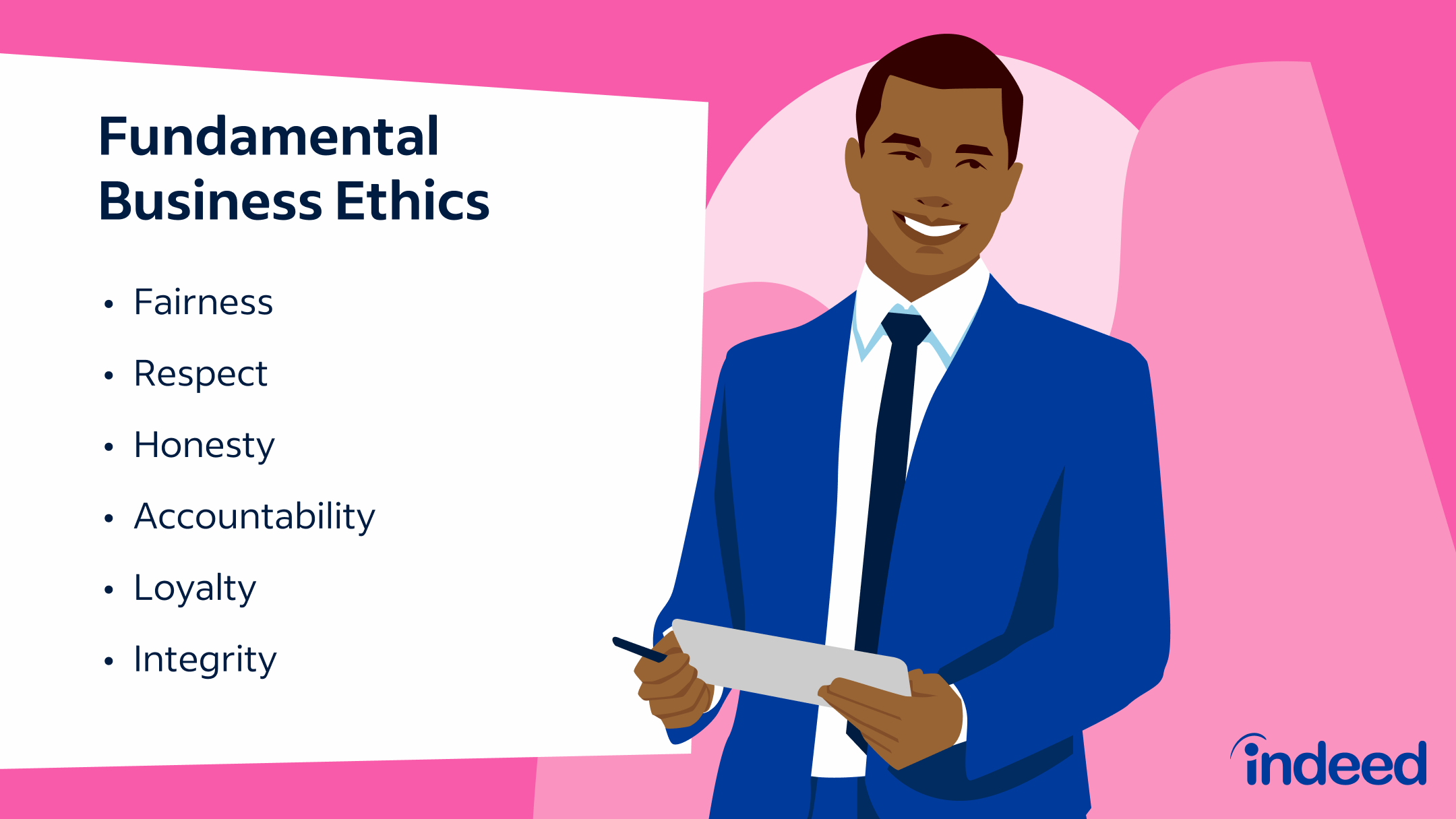1. Define Business Ethics. 2. List 4 Unethical Business Practices.
Business ethics refers to the principles and standards that guide decision-making in a business, particularly in relation to issues such as fraud, bribery, discrimination, and corporate governance. It involves promoting trustworthiness through honesty, transparency, and reliability in all interactions with clients, customers, and employees. Cambridge Dictionary defines business ethics as the rules and principles for determining moral right and wrong in the workplace. In simple terms, it is the moral code that guides a business's behavior and transactions. It is also the study of ethical dimensions in business operations and how businesses should navigate ethical dilemmas and controversial situations.
Business ethics refers to the principles and standards that guide decision-making in a business, particularly in relation to issues such as fraud, bribery, discrimination, and corporate governance. It involves promoting trustworthiness through honesty, transparency, and reliability in all interactions with clients, customers, and employees. In simple terms, it is the moral code that guides a business's behavior and transactions. It is also the study of ethical dimensions in business operations and how businesses should navigate ethical dilemmas and controversial situations.
Unethical Business Practices:
- Fraudulent financial reporting
- Employee exploitation such as child labor or unfair wages
- Environmental pollution without proper concern for environmental impact
- Deceptive marketing practices
Social responsibility is the duty of businesses to act in ways that benefit society at large. Corporations must consider the impact of their operations on the community, environment, and society. They must take into account ethical, legal, and economic considerations and integrate social and environmental concerns in their business operations and interactions with stakeholders.
Responsibilities Businesses have to the General Public:
- Providing safe and reliable products or services
- Contributing to the local community and economy
- Honoring commitments and obligations
- Engaging in fair and ethical business practices
Responsibilities Businesses have to the customer:
- Providing quality products or services
- Ensuring fair pricing and advertising
- Respecting consumer rights and privacy
OSHA stands for the Occupational Safety and Health Administration. It is a federal agency that sets and enforces standards to ensure safe and healthful working conditions.
Responsibilities Businesses have to the employee:
- Providing a safe and healthy work environment
- Ensuring fair wages and benefits
- Respecting employees' rights and promoting a diverse and inclusive workplace
Responsibilities Businesses have to the investor:
- Providing accurate and timely financial information
- Acting in the best interest of the shareholders
- Avoiding conflicts of interest and insider trading
The Wells Fargo scandal involved employees creating millions of fake bank accounts and credit card applications without the consent of customers. This unethical practice was done to meet aggressive sales targets and led to the exploitation of customers.
The 4 Pillars of Social Responsibility are economic, legal, ethical, and philanthropic responsibilities that businesses have towards society. These pillars represent the different aspects of a business's responsibility to operate in a manner that benefits society and the environment.
Sources
:max_bytes(150000):strip_icc()/business-ethics_final-78b960a3df9a4f5b9b44b77e831323b2.jpg)

Related Questions
Work fast from anywhere
Stay up to date and move work forward with BrutusAI on macOS/iOS/web & android. Download the app today.
